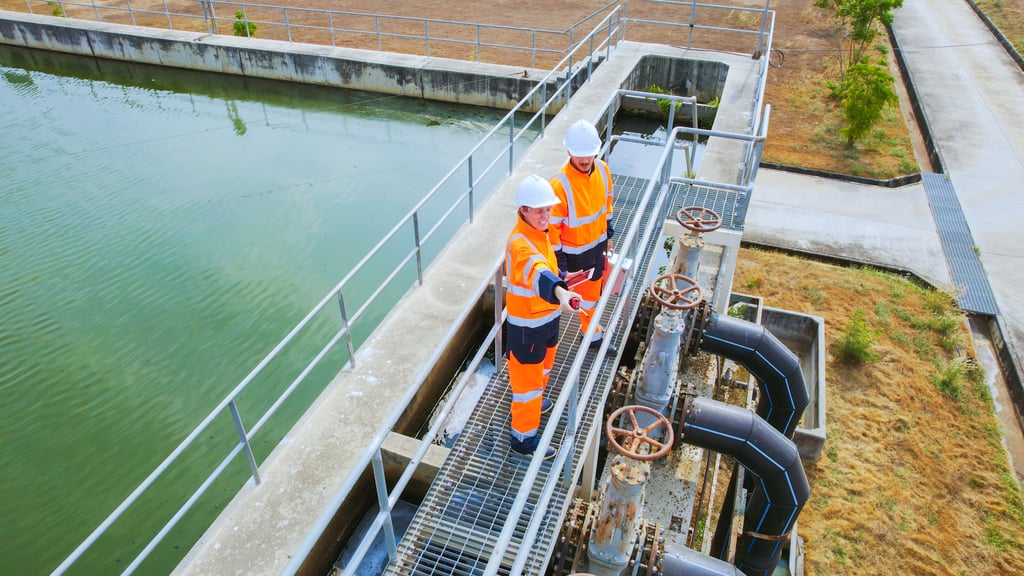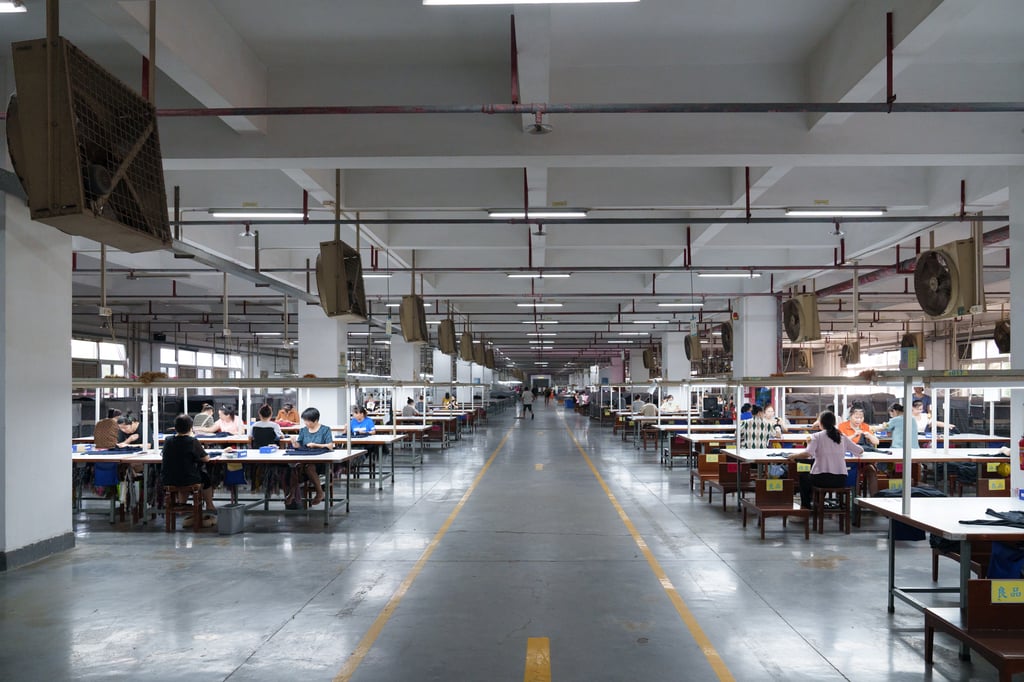A growing number of companies recognise that climate change can impact business assets and performance. As a result, we see businesses are implementing measures to adapt and mitigate exposure to climate risks, such as transitioning to low-carbon operations to reduce greenhouse gas emissions in line with the international commitments under the Paris Agreement.
These efforts are intrinsically necessary; however, companies must consider the human rights and social implications of their efforts to respond to climate change risks by conducting due diligence on their climate action, including throughout their supply chains.
At COP27, business leaders confirmed their commitment to a “Just Transition,” the core of which is to avoid harm to workers, communities, and regions on the way to decarbonisation and energy transition while contributing to the Sustainable Development Goals (SDGs).
Our approach to Corporate Just Transition
From a company's perspective, a Just Transition is a process in which a company mitigates and adapts to climate change risks and transits to a low-carbon economy in a socially and environmentally responsible way.
Just Transition means companies embedding human rights, social dialogue, labour rights, and decent employment principles into climate risk management strategies to deliver shared benefits for businesses, workers, and communities (UN, 2023).
Companies have the opportunity to maximise human welfare and establish themselves as human rights promoters through their Just Transition strategies.

When companies examine climate change issues, and the proposed measures to manage them, it is imperative to understand that these are intrinsically linked to people. A Just Transition is a holistic, people-centered, human rights-based approach to climate change.
How can your climate strategy impact human rights?
Your climate change strategy can be connected to human rights impacts through:
-
Your mitigation actions taken to respond climate change: for example, buying carbon offsets; or buying carbon credits; or developing nature-based solutions.
-
Your adaptation actions taken to respond to the physical risks and impacts of climate change: for example, irrigation infrastructure to adapt to drought.
-
Your transition actions into new ways of manufacturing, projects, or new business models: for example, switching from fossil fuel-based energy to renewable energy, or measures towards a green economy using new technologies and circularity.
Case examples:
| Mitigation action | Adaptation action | Transition action |
|
For example, a company aiming to reduce emissions decides to buy carbon credits from a supplier operating in the Amazon. However, the carbon credit supplier failed to consult Indigenous communities and caused them harm.
It has also been alleged that the project didn't have a grievance mechanism to facilitate communities' access to remediation. |
For example, a company builds a barrier to protect its own assets from flood without considering the impacts on the ecosystem services that provide water to surrounding communities. |
For example, a company diversifies its power generation portfolio through renewable energy projects requiring significant amounts of minerals, such as lithium, cobalt, and copper. However, advocacy groups alleged that the cobalt was sourced used forced child labour in a conflict zone in Latin America. Also, they alleged that the supply chain was rarely checked for risks of forced labour or other abuses. |
The actions taken by businesses to tackle climate change require them to seek new technologies, and skills, which can result in unpredicted labour and human rights risks. This includes, for example, impacts on the environment related to the extraction of critical minerals, has implications on workers, including child labour, hazardous working conditions, and adverse impacts on communities, including Indigenous peoples.
The lack of conducting human rights due diligence in climate action strongly correlates with maladaptation and exacerbates the vulnerabilities in high-risk countries. (IHRD,2022)
What can you do?
First, you need to be aware and measure any potential impacts of your climate actions. This can be ensured by conducting meaningful human rights due diligence as set out under the UN Guiding Principles on Business and Human Rights.
Human rights due diligence entails developing policy commitments to respect human rights, identifying, and acting upon adverse human rights impacts, including providing remedy, and extending human rights due diligence across value chains.

The UN Guiding Principles on Business and Human Rights (UNGPs) are increasingly being incorporated into hard law (such as the EU’s Corporate Due Diligence Directive), which can help companies avoid harm in the path to a just transition.
Second, undertake due diligence within your supply chains related to climate action by adopting a responsible sourcing program to identify, monitor, and address potential adverse impacts along your end-to-end value chain. Understanding the origins of your sourcing and the potential repercussions for both people and the environment is essential. For example, battery manufacturers for energy storage should consider whether sourcing essential minerals like lithium, cobalt, and copper is not adversely impacting local communities, workers, or the environment at the source of extraction. Poor safety conditions, security and conflict issues, and lack of community consultation are common issues to be aware of.
Third, you need to understand better the local context and social-environmental conflicts that may increase your exposure to impact human rights through your climate actions. For example, if you require land acquisition, you need to know if Indigenous communities depend on it to enforce their right to free, prior, and informed consultation. You need to ask yourself if there are historical conflicts around land use. It is important to ensure that your climate action is not exacerbating social conflicts or impacting communities’ livelihoods.
Fourth, advance on responsible management of your company reorganisation regarding the workforce needed for transition. Decent work is the center of a just transition, highlighting the importance of social dialogue and labour rights. For example, adopting a new technology for renewable energy could lead to drastic changes in the workforce, so you need to identify in advance how you upskill or reskill workers to avoid job losses and social conflicts.
In conclusion, business must integrate human rights principles into their climate strategies and practices. They must mainstream these strategies within their operations and through the value chain to promote just transition.
You can create value to your stakeholders through your climate action by not just preventing adverse impacts, but also by promoting human rights!
While it is important for business to manage impacts across the value chain, it is also important to ensure that climate strategies are developed via constructive social dialogue with stakeholders, including workers, workers’ representatives, labour unions and communities.
This engagement can help to ensure that adverse impacts are identified and mitigated and enhance mutually beneficial outcomes as businesses tackle climate change.
The following are three actions to encourage stakeholder engagement:
-
Engage with potentially affected communities: Listening to the perspectives of potentially affected people is a core part of ongoing due diligence and effective business operations management. It is vital to integrate their perspectives into your decision-making processes and into the planning and execution of mitigation and adaptation measures.
-
Collaborate with your suppliers: This means an invitation to discuss not just the presence of a human rights policy or process, but how it is implemented, and the challenges suppliers face in doing this implementation.
-
Social dialogue with your workers: It is about exchanging views and solving problems about how the introduction of low-carbon infrastructure impacts labour rights, the need for upskilling and re-skilling programs as partners in a mutually respectful relationship.
LRQA is here to help
Climate change is complex, and many businesses find it challenging to develop an integrated approach to managing climate change and human rights risks.
To help you determine which human rights are particularly relevant to you and your climate strategy, we have human rights and climate change experts that support different multinational and local companies to assess, design, and strengthen their mitigation, adaptation, and transition plans in accordance with the geographical challenges and aligned with the human rights and responsible business conduct international standards.
We provide you with insights into the impact of human rights and emerging supply chain risks that you should be aware of in the context of climate change. We encourage you to contact us to resolve your questions on how incorporating human rights into your climate strategy will look.
The process includes six key steps:
-
Assessment of actual and potential impacts on Human Rights.
-
Strengthen prior consultation processes with ethnic communities.
-
Provide innovative methodologies for the meaningful participation of rights holders potentially impacted by the mitigation, adaptation, and transition plans.
-
Integration of findings and delivery of risk mitigation plans and corporate Due Diligence frameworks.
-
Track impact management and remediation over time.
-
Communicate and report how impacts are being addressed.
LRQA can also perform a gap analysis to help you understand your level of maturity and plan a course of action to strengthen your corporate Due Diligence framework.
If you want to know more about how we can help you manage your Social and Environmental Due Diligence process, do not hesitate to contact us.









